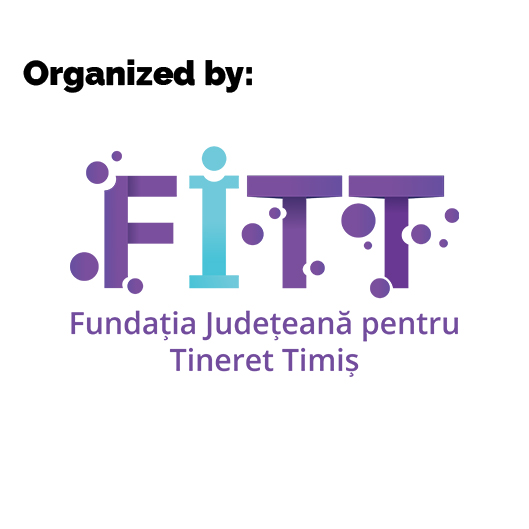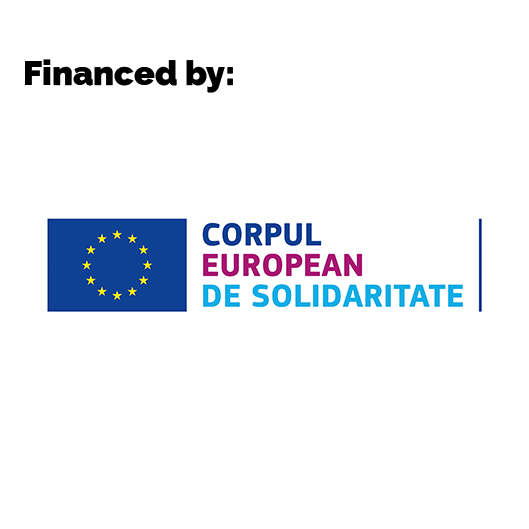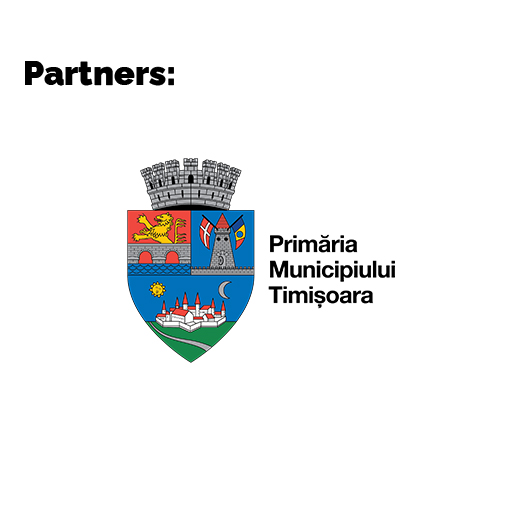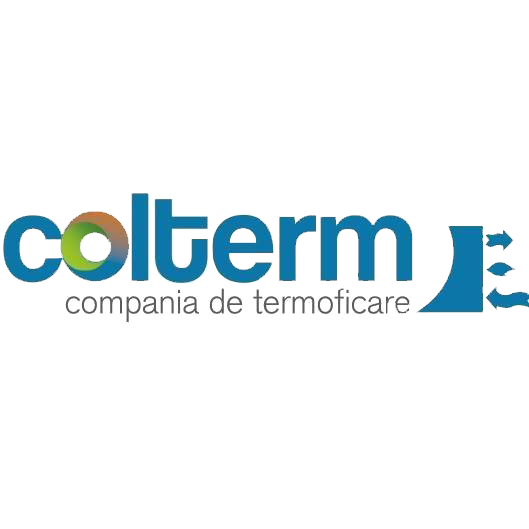Youth Centres UP story
What represents Youth Centers UP?
A bit of courage, a bit of madness, and a lot of desire for change. Youth Centers UP is a project funded by the European Solidarity Corps that aims to create new safe spaces for expression and learning, dedicated to young people. In the context of Timisoara becoming European Capital of Culture, it was necessary to have spaces where young people could express and develop freely.
Neighborhood youth centers are now spaces for all young people, regardless of their identity, preferences, sex, religion or other characteristics. Thus, the project aimed to lay the foundations of the youth centres in order to become communication spaces between the youth and the community, where they can come together and develop (themselves).
Youth Centers UP is a courageous solidarity project that brought between the 11th of July and the 5th of September 2019, over 125 volunteers from 25 countries around the world and Romania, equipped with determination and willingness to do good and to develop a community. The project was initiated and implemented by Timis County Youth Foundation, and thanks to it, the autumn of 2019 found Timisoara to belong, more than ever, to the young people. Friendly and welcoming, during that summer, the city has enriched itself with 5 safe spaces for the youth and not anyway, but through the common and motivated involvement of volunteers, along with the members of Timisoara’s community.
What did Youth Centers UP propose?
In the short term, to involve 100 young people from Europe in solidarity activities (as volunteers) in five communities from Timisoara, to involve the community and the citizens in setting up of five urban youth centers - through volunteering actions or donations for the centers’ development (donations that are only objects that are needed for decorating/arranging), inaugurating the centres using the principle of community solidarity and participatory arts.
Moreover, the project aimed to develop transversal skills for the young volunteers, such as team work, sense of initiative, organizing events, communication in a foreign language, and conducting a national conference of results’ valorization on the 12th of August (International Youth Day).
In the long term, the project aims to create neighborhood youth communities around the urban youth centers, that contribute to the development of the city and actively participate in democratic and civic life, improving the access and the participation of those from disadvantaged groups (young people at risk or with special needs, from disadvantaged areas) and the reduction of potential disparities, as long as the creation of an example of good practice in the ESC program both for Romania and for Europe.
Project stages:
TEAMS’ FORMATION AND COMMUNITY ENGAGEMENT
The first three days were dedicated to teambuilding and team accommodation activities, and it was organised a session dedicated to training and bonding of the teams, way of work, leadership, interculturalism and diversity aspects within and outside the group, and work and interaction with the community. Also, at this stage, there were established the main responsibilities of the volunteers – both individual and group, and they have discovered new ways of interacting with the community.
WORKSHOPS TO DEVELOP PRACTICAL SKILLS
Organized under the supervision and guidance of the project team with experience in the carried out activities, the workshops aimed to develop volunteers’ practical skills that are needed for the arrangement and refurbishment of the spaces. In these workshops, volunteers learned how to use various tools subsequently used in the centers’ arrangement. They learned to use the slapper for wall painting and to use the equipment needed to carry out renovation work (use of tools, vacuum cleaner, self-tapping). At the same time, volunteers gained practical skills to reuse old furniture - color painting of the old furniture and support in its renovation.
These workshops have not only helped to develop skills in the use of tools, renovation or refurbishment of some pieces of furniture, but also to develop their thinking and the tendency to re-use, developing the principle of "to repair or to recondition instead of throwing them away".
YOUTH CENTRES’ SETTING UP
The old buildings entered in the process of planning and preparing for hosting activities dedicated to the young people. Those 20 days involved not only planning and actual work in the centers, but also continuous adaptation and re-planning - the volunteers had carried out initial plannings for rehabilitation, which required adaptations as the donations came, but also interaction with community members, who contributed to the transformation. Thus, there were used methods such as world cafe, debates, and open discussions with the members of the community.
CONFERENCE TO VALUE THE RESULTS
Conference to value the results, organised on the 12th of August, was dedicated to bringing to light the work done by volunteers with the help of the community members. The conference has brought attention not only to the concept of "solidarity", but also to the "transformation of the education" which was a major focus of the conference, considering that the outcome of the project consisted of five new youth centers. The objectives of the event were:
Promotion of good practice that were gathered from ESC projects implemented in Romania;
dissemination of the results of the Youth Centers UP project with the general public and the guests of the conference;
Promotion of community change through activities initiated by young people.
The event was structured in 5 parts:
The opening of the event – speeches and examples of good practice, where representatives of public institutions, partner NGOs from the country, and a representative of ANPCDEFP were invited;
Parallel workshops –six parallel workshops with the titles: “To educate means to believe in change. Let each voice be heard!", "Exploration of diversity / A peer to peer approach in education for diversity", "Privilege and exclusion / A peer to peer approach to inclusive education", "Change’s action", SDG No. 4 in youth centers” and “How can ESC help young people in rural areas to take a step forward’;
Visit of the five youth centers – through a guided tour, by buses that transported participants from one center to another;
Solidarity talk – plenary session with open discussions and examples of good practice on solidarity actions undertaken by young people, organized in the summer garden behind the Youth House – a tangible result of solidarity, designed by the support of the community and now, dedicated to young people. Within them, the volunteers had the opportunity to create a presentation of their team’s activity, where they talked in front of the participants about the course, the challenges, the solutions, the positive parts, and the achievements of community intervention. That was a moment for reflection for the volunteers, but also a good moment for disseminating the results of the reflection to all the participants in the session.
Social evening – art exhibition, English theater, and concert in the summer garden.
YOUTH CENTRES’ INAUGURATION
The opening events of the centers have been fully planned by volunteers, having the opportunity to develop their organizational skills. From the creation of promotional materials to the plannification of the activities carried out, from the distribution of tasks to the creation of materials’ list, all of these were realised by the volunteers, with support from FITT. Each team had at its disposal the budget for the inauguration activity, which was spent according to the needs.
The opening events covered cultural, educational, and entertainment activities, taking the form of some concerts, painting workshops, flow arts, group games, table games, hands-made creative workshops, that were promoted by the volunteers, both online on the youth centers’ Facebook pages, as well as offline, volunteers putting posters in the neighborhood, distributing flyers, and speaking directly to the members of the community. At the same time, the events were also promoted through community members who helped to set up the centers, by passing verbally the information of the new spaces’ inauguration.
PROJECT EVALUATION
The project evaluation meeting took place during one day and was focused on the reflection process of those 40 days of volunteering work. Thus, the participants had the opportunity to assess the developed skills, the teamwork, the community collaboration and receptiveness, and logistical aspects, as well as to come up with proposals for improvements for future voluntary activities.
Meanwhile, taking into consideration the volunteers’ impact on the community, they were guided to create future plans and to establish what they are going to do after leaving Timisoara. The evaluation meeting ended with the volunteers' thoughts in letters for the future volunteers.





